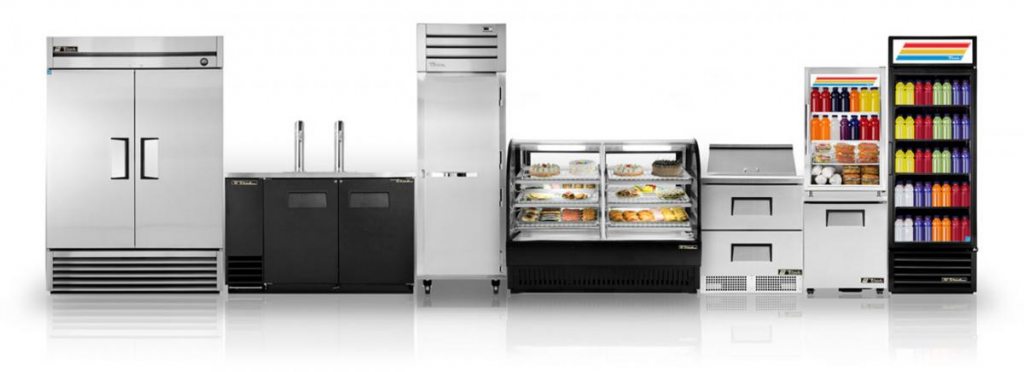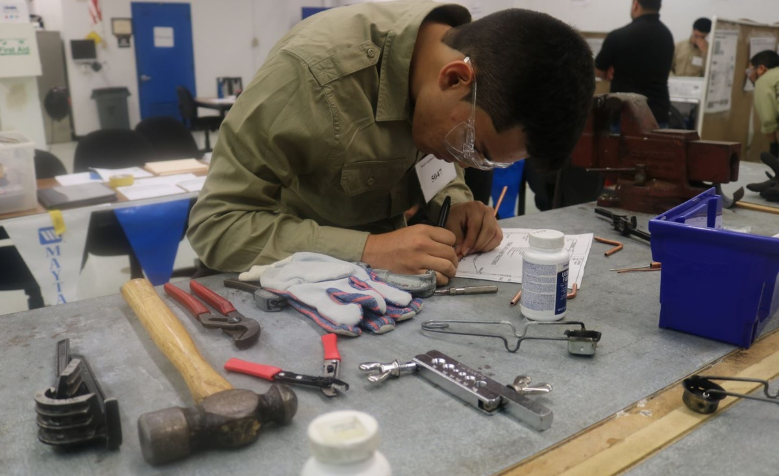Vital Tips for Effective Ref Fixing to Prolong Device Lifespan
When it comes to your fridge, proper repair work and maintenance are vital for longevity. Recognizing common troubles and knowing when to act can make all the distinction.
Understanding Usual Refrigerator Problems
Fridges are important in maintaining your food fresh, but they can run into a series of usual problems that disrupt their efficiency. One constant problem is poor cooling. If you discover food spoiling quicker than normal, check the thermostat settings or think about if the door seals are damaged. Another usual issue is excessive sound, which can show a malfunctioning compressor or a stopping working fan. You might also experience water pooling inside or underneath the refrigerator; this typically results from a clogged up defrost drain or a faulty water line. In addition, if your fridge's light isn't working, maybe an easy light bulb concern or a problem with the door button. Ice build-up in the freezer can impede air flow and cooling performance. Recognizing these issues early can conserve you money and time out of commission, guaranteeing your refrigerator runs efficiently and successfully.
Normal Maintenance Practices
To maintain your devices running smoothly, you need to stay on top of regular maintenance methods. Tidy the condenser coils, inspect the door seals, and keep track of the temperature level setups to assure peak efficiency. These straightforward tasks can save you money and time on repair work down the line.
Clean Condenser Coils Routinely
Cleaning your condenser coils on a regular basis can considerably improve your home appliance's effectiveness. Dust and dirt develop up on these coils over time, triggering your device to function harder and consume more energy. To maintain them clean, disconnect your home appliance and thoroughly eliminate any kind of protective covers.
Inspect Door Seals
Three simple actions can aid you ensure your appliance's door seals are in good problem. 2nd, clean the seals making use of cozy, soapy water to eliminate any particles or gunk. By following these actions, you'll keep your home appliance's performance and longevity, conserving you money on power expenses and repair work in the long run.
Display Temperature Settings
Routinely checking your device's temperature settings is necessary for best performance and effectiveness. Make use of a thermometer to inspect these setups regularly, particularly after significant adjustments, like moving your appliance or changing the thermostat. By remaining aggressive about temperature tracking, you'll ensure your devices run efficiently and last much longer.
Troubleshooting Cooling Problems
When your fridge isn't cooling down correctly, it can bring about spoiled food and wasted money, so attending to the problem without delay is crucial. Start by checking the temperature settings to confirm they're at the suggested levels, normally around 37 ° F for the refrigerator and 0 ° F for the fridge freezer. If the settings are appropriate, check the door seals for any type of gaps or damages; a malfunctioning seal can allow warm air to get in.
Next, analyze the vents inside the fridge and freezer. Confirm they're not blocked by food items, as this can interfere with air movement. Pay attention for the compressor; if it's not running or making uncommon sounds, it might need interest. Finally, check the condenser coils, usually located at the back or base of the device. Dirt and particles can collect, triggering cooling issues. Tidy them with a vacuum cleaner or brush to enhance performance. If problems linger, it may be time to call an expert.
Repairing Water Leak and Ice Accumulation
If you're taking care of water leakage or ice build-up in your device, it's important to determine the source of the trouble. By identifying where the water is coming from, you can protect against additional issues and stay clear of expensive repairs. Allow's explore some reliable techniques to take on these common problems.
Recognize Leakage Resources
Exactly how can you effectively recognize the sources of water leakage and ice accumulation in your appliances? Start by evaluating the seals and gaskets on your refrigerator and fridge freezer doors. A worn or broken seal can enable cozy air to go into, creating condensation and ice. Next, examine the drain frying pan and drainage system for obstructions or obstructions; a backed-up drainpipe can result in water merging. Search for any kind of loose links in the water supply line, which can produce leaks. Likewise, check out the defrost drain for ice build-up, which could interrupt correct drainage. By systematically inspecting these locations, you'll pinpoint the source of the trouble, allowing you to take the required actions to repair it and extend your home appliance's life-span.
Protect Against Ice Formation
To avoid ice formation in your home appliances, begin by validating the temperature level setups are appropriate. If your fridge or freezer is too chilly, it can cause too much ice accumulation. Examine the door seals regularly; damaged seals can let warm air in, causing condensation and ice formation.
Keep the appliance well-ventilated and avoid overcrowding, as this can obstruct air movement - Dependable Refrigeration & Appliance Repair Service LG Appliance Repair. Consistently defrost your freezer if it does not have an automated defrost function.
If you notice water leak, determine and repair any obstructed water drainage holes, as they can contribute to ice buildup. Clean the coils and verify they're operating appropriately to maintain peak efficiency. Taking these steps will certainly assist extend your device's life expectancy and efficiency.
Resolving Noisy Refrigerator Sounds
While it may appear worrying, a loud refrigerator commonly signifies small concerns rather than significant malfunctions. Typical culprits consist of the compressor, fans, and water lines.
Next, look for loose items inside. Sometimes, containers or shelves can rattle, developing unwanted noise. Tighten up or rearrange them to get rid of the audios.
If you discover a clicking sound, it may be the defrost timer. This is normally harmless but might show it needs assessment.
Ultimately, verify your refrigerator is degree. An out of balance home appliance can create resonances and noise. Use a degree to examine, and adjust the feet if needed. Attending to these concerns promptly can help preserve your fridge's efficiency and lengthen its lifespan.
When to Change Components vs. Complete Substitute

Take into consideration the cost of fixings versus the home appliance's worth. Furthermore, if you notice continuous problems that maintain recurring, it's an indication that your appliance has reached the end of its life.
Understanding When to Call an Expert
Just how can you inform when it's time to hire a specialist for home appliance fixing? If you discover uncommon noises, smells, or leakages, it's a clear signal that something's wrong. Don't overlook these signs; they usually indicate much deeper concerns. If your appliance quits working completely or frequently trips breaker, it's one more warning.
You should likewise consider your very own convenience useful reference level with repair work. If you're unclear about diagnosing the issue or do not have the right devices, it's best to connect for assistance. Bear in mind, trying complex repair services can bring about more damage and even security dangers.

Regularly Asked Concerns
How Usually Should I Clean the Fridge Coils?
You must cleanse your fridge coils every 6 months. This aids keep performance and prevents overheating. If you notice excessive dust or pet hair, clean them more frequently to assure your refrigerator runs efficiently.

Can I Make Use Of Vinegar for Cleansing My Fridge?
Yes, you can use vinegar to clean your refrigerator! It's an excellent natural cleaner that removes odors and stains. Appliance Repair Oro Valley Dependable Appliance Services. Simply mix it with water, apply it to surface areas, and clean down for a fresh, clean fridge
What Temperature Should My Fridge Be Establish To?
You ought to set your fridge to 37 ° F(3 ° C) for perfect food preservation. This temperature level maintains your food fresh while avoiding putridity, ensuring your grocery stores last longer and reducing waste. It's a very easy change you can make!
Does a Refrigerator Need to Be Leveled?
Yes, your refrigerator needs to be leveled. If it's irregular, it can impact cooling performance and trigger excess noise. Examine the leveling legs and adjust them to assure appropriate equilibrium for suitable performance.
Just How Can I Minimize Refrigerator Power Consumption?
To lower your fridge's energy usage, keep it tidy and well-ventilated, check door seals for leakages, set the temperature level between 35-38 ° F, and avoid overwhelming it. These steps can substantially lower your power bills.